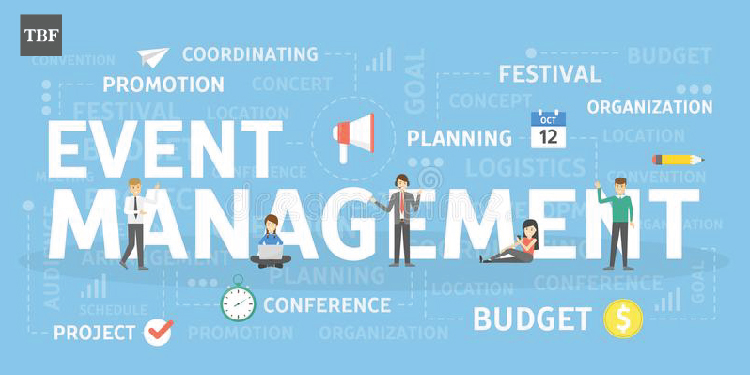The future of charlotte event companies in a technology-driven world
Wiki Article
A Deep Study Exactly How Event Management Works to Produce Memorable Experiences
Event management is an intricate self-control that integrates various components to craft memorable experiences. It calls for a clear understanding of the event's function and target market. Planners have to navigate budgeting, logistics, and advertising and marketing to guarantee a smooth implementation. Each element plays an important duty in accomplishing the preferred impact. Nevertheless, the journey does not finish with the event itself. There are understandings to discover that can shape future undertakings.The Principles of Event Management
Reliable event management incorporates a variety of necessary concepts that direct the planning and implementation of effective occasions. At its core, it includes understanding the event's objective, audience, and preferred outcomes. Identifying the target group is important, as it informs decisions associated with web content, advertising and marketing, and logistics.Budgeting is one more basic element, guaranteeing that resources are designated successfully while satisfying the event's goals. This consists of preparation for unexpected expenditures that may develop.
Time management plays an important role, as event managers should establish an in-depth timeline to work with various tasks and turning points.
Furthermore, efficient communication amongst stakeholders, suppliers, and employee is vital to ensure positioning and prevent misunderstandings.
Lastly, danger management should be thought about, with contingency plans in location to address prospective difficulties, therefore boosting the total experience for guests and ensuring a seamless execution of the event. (charlotte event companies)

Secret Roles in Event Preparation
In event planning, comprehending key functions is vital for successful implementation. The event coordinator is liable for managing logistics and guaranteeing all facets line up with the vision. Additionally, efficient vendor management is crucial for maintaining top quality and cultivating solid partnerships throughout the planning process.Event Planner Responsibilities
An event coordinator coordinates the complex components of event planning, ensuring smooth implementation from fertilization to final thought. They are accountable for conceptualizing the event theme, setting budgets, and producing timelines to maintain the project on course. Coordination with stakeholders, including customers, place managers, and volunteers, is necessary to align assumptions and facilitate interaction. The planner also manages logistics, such as event catering, transport, and modern technology requires, ensuring all elements function sympathetically. They perform website gos to, handle routines, and troubleshoot concerns that might arise during the event. Post-event, the coordinator reviews the event's success, collecting comments and examining end results to inform future jobs. This complex function needs strong business abilities, focus to information, and effective interpersonal interaction.Supplier Management Fundamentals
Steering through the landscape of supplier management is crucial for effective event preparation. Reliable supplier management includes recognizing, selecting, and collaborating suppliers that give essential solutions, such as food catering, audiovisual support, and decor. Event planners need to preserve strong communication with suppliers to ensure that all elements align with the event's vision. Trick roles include the supplier supervisor, who looks after contracts and negotiations, and the logistics coordinator, responsible for on-site arrangement and execution. It's imperative to develop clear expectations and timelines, fostering a collaborative setting that improves the overall experience. By focusing on these components, event coordinators can navigate prospective obstacles, ensuring that every information contributes to a seamless and memorable event.Crafting a Vision: Principle Advancement

When a vision is established, it ends up being important to translate it into workable components. This consists of defining the atmosphere, choosing suitable venues, and establishing the event's design. Working together with stakeholders, consisting of sponsors and companions, better improves the concept, making certain that all events share a merged understanding of the event's purpose. Inevitably, a well-developed vision not Learn More Here just enhances participant involvement but also sets the stage for memorable experiences that resonate long after the event wraps up.
Budgeting and Source Allowance
With a clear vision in position, the next action in event management includes cautious budgeting and resource allowance. This important stage assurances that all needed elements are moneyed and lined up with the event's objectives. Event managers start by approximating expenses related to venue selection, wedding catering, home entertainment, and advertising. They produce a thorough budget plan that outlines each category, enabling transparency and responsibility.Resource appropriation prolongs beyond finances; it additionally incorporates human sources. Recognizing group functions, obligations, and timelines is important to ensure performance. Event managers need to likewise take into consideration backups for unforeseen costs or adjustments in scope, developing a buffer within the spending plan.
Focusing on spending on components that enhance visitor experiences is crucial. By purposefully allocating resources, event managers take full advantage of impact while preserving economic control. This disciplined approach not only promotes successful events yet additionally constructs reputation and count on with stakeholders and participants.
Logistics: The Backbone of Event Execution
While budgeting lays the groundwork for an occasion, logistics offer as its foundation, guaranteeing that every aspect is carried out efficiently and effectively. charlotte event companies. This includes a vast array of tasks, consisting of location selection, transport plans, and equipment purchase. Reliable logistics management needs Click Here careful planning and coordination to assure that all components straighten with the event's timeline and purposesTrick parts of logistics consist of inventory management, where materials and products are tracked to prevent shortages, and staffing, which involves recruiting and training workers to handle numerous tasks. Interaction is additionally important, as it helps with partnership amongst suppliers, sponsors, and the event group.

Advertising And Marketing and Promo Techniques
Effective advertising and promotion methods are essential for optimizing participation and engagement at an occasion, as they generate interest and enjoyment among potential individuals. Event supervisors employ a mix of conventional and electronic advertising and marketing techniques to reach their target audience. Social network platforms, e-mail projects, and targeted advertisements are commonly utilized to create buzz and foster community interaction. Partnerships with influencers or industry leaders can enhance reliability, while involving web content such as videos and testimonies can reverberate with possible participants.Additionally, leveraging event-specific hashtags and creating shareable graphics motivates organic promotion among attendees. Early bird ticket deals and exclusive promotions can incentivize enrollment, in addition increasing passion. Furthermore, a well-designed site that provides easy navigation and clear information concerning the event can improve the user experience. By applying these advertising and marketing and promotion approaches, event managers can assure greater presence and inevitably produce an unforgettable experience for all participants.

Determining Success: Responses and Analysis
Success in event management depends upon durable comments and analysis systems. These processes are crucial visite site for determining the effectiveness of an event and determining locations for enhancement. By gathering input from participants, organizers can analyze satisfaction levels, understand preferences, and evaluate general effect. Studies and meetings act as useful tools for gathering quantitative and qualitative data, permitting extensive evaluation.Additionally, reviewing key efficiency indicators (KPIs) such as presence rates, interaction degrees, and return on investment (ROI) supplies a more clear picture of event success. Post-event debriefing sessions with the planning group additionally contribute understandings, promoting a society of continual improvement.
Eventually, an organized method to comments and analysis not just enhances future events but likewise reinforces partnerships with stakeholders. By implementing these techniques, event managers can produce remarkable experiences that reverberate with participants and drive recurring involvement.
Regularly Asked Questions
Exactly How Do Event Managers Manage Unanticipated Obstacles Throughout an Occasion?
Event supervisors resolve unforeseen difficulties by staying calmness, examining the scenario, and carrying out contingency strategies - charlotte event companies. They communicate efficiently with their group, adjust promptly, and focus on remedies to ensure the event proceeds smoothly and effectivelyWhat Modern Technology Tools Are Essential for Modern Event Management?
Essential technology devices for contemporary event management consist of event registration software program, project management applications, participant interaction systems, and analytics devices. These resources streamline processes, enhance interaction, and enhance overall event experiences for coordinators and individuals alike.Exactly How Do Cultural Distinctions Effect Event Planning and Implementation?
Social differences greatly affect event planning and execution. They impact styles, customs, interaction styles, and assumptions, demanding tailored approaches to ensure inclusivity and respect, inevitably shaping the total experience and success of the event.What Are the Honest Considerations in Event Management?
Moral considerations in event management incorporate openness, sustainability, social level of sensitivity, and inclusivity. Planners have to prioritize justness, respect varied audiences, lessen environmental effect, and warranty access to develop accountable and unforgettable experiences for all individuals.How Can Sustainability Be Integrated Into Event Preparation?
Sustainability can be incorporated right into event planning by utilizing green materials, minimizing waste, sourcing regional suppliers, executing carbon countered programs, and promoting digital options to decrease paper use, thereby improving ecological awareness within the event's framework.Report this wiki page